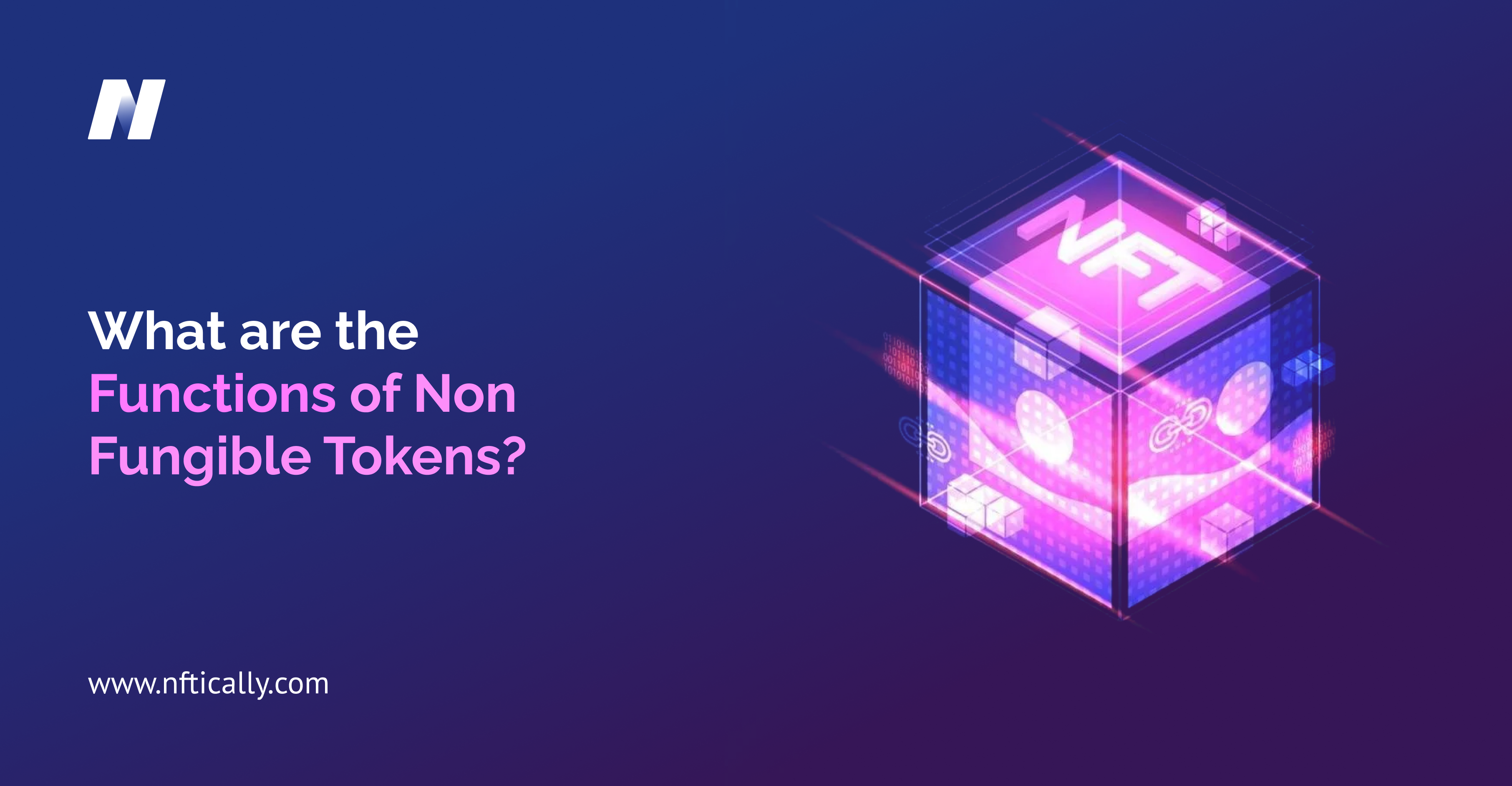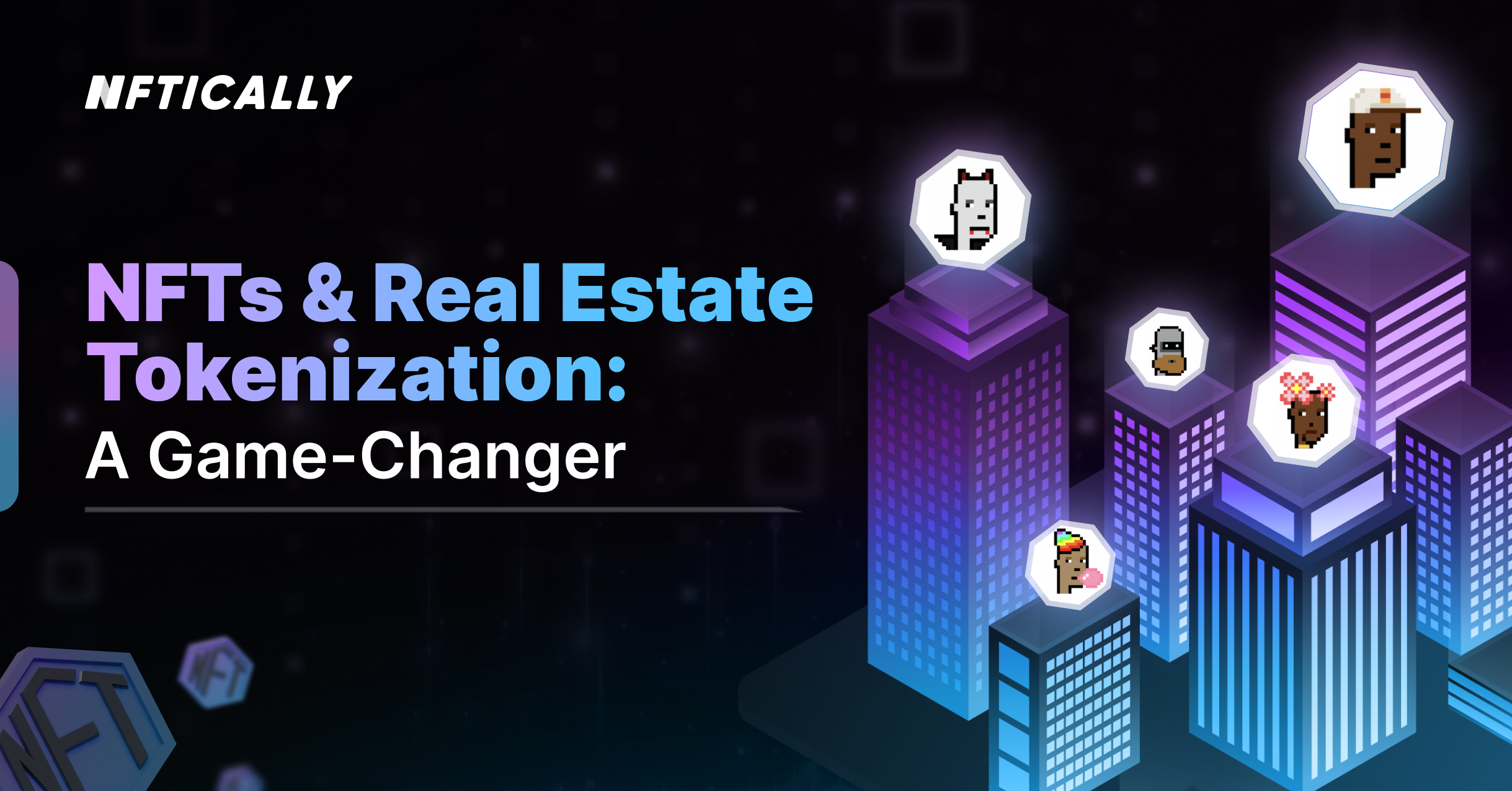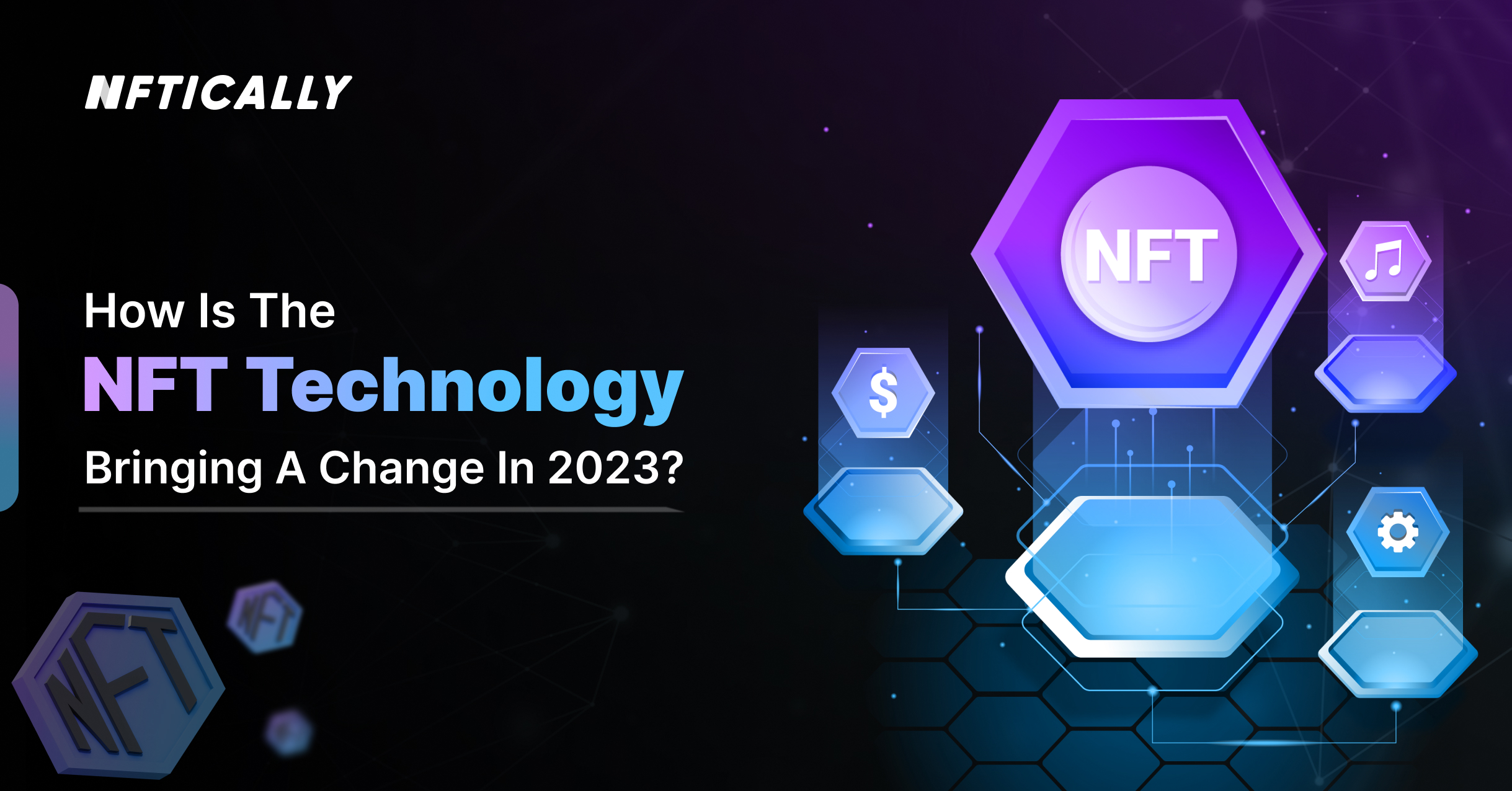- NFT
- August 25, 2021
What are the Functions of Non-Fungible Tokens?

Non Fungible Tokens have been in existence for quite a long while, yet since 2020 they are acquiring a high degree of recognition. A 2020 research by NonFungible.com (a site that follows NFT marketplaces and projects) and L’Atelier BNP Paribas indicates the volume of NFTs exchanged in the USA was $250.85 million. This is an insignificant part of the actual NFT coins market yet profoundly appealing to content makers. The ERC-721 standard is the contract base behind the Non-Fungible tokens for making NFTs. It can be pre-defined to allow content makers to acquire profits from every single sale.
The NFT market will probably develop further because any digital data can be “printed” into an NFT. NFTs are an effective method of securing and managing digital assets.
What are Non-Fungible Tokens?
An NFT is a collectible digital resource, which holds the value of cryptocurrencies, art, or culture. Non Fungible Tokens and NFT coins are a kind of cryptocurrency or digital tokens similar to BTC or ETH. However, like a standard digital coin in the blockchain, clients can not trade an NFT.
What makes an NFT more extraordinary than others is that its record stores additional data, which raises it above other digital tokens. There are various types of NFTs present in the market. They can be a piece of digital artwork or a music record – anything unique on the digital form holding some value.
They resemble any other real-life items, for example, with NFTs, rather than getting a canvas painting that you can hang in your room, you receive a JPG document.
key functions of NFTs:
- NFT functions as a non-interoperable asset, meaning any collectible in the NFT platform will not follow an exchange with any other kind of collectible.
- NFTs are indivisible; The functionality of NFTs doesn’t permit anybody to separate it into smaller divisions like bitcoin or Ether. They exist solely as exclusive content.
- NFTs are not destroyable as the framework stores all NFT information on the blockchain using smart contracts; it is absurd to eradicate, eliminate or reproduce every token. Likewise, ownership for tokens is changeless, implying NFT collectors are the real owners of their NFT collection and not the organizations that make them.
- In any other digital platform, buyers only get the right to use the item they pay for, but in the NFT platform, buyers can claim ownership over the item. This is the special function of Non Fungible Tokens.
- The offering of ownership information on the NFT platform is the prime functionality of NFTs. It allows clients to track the entire journey of the digital asset. It gives data of original creators and persons who have been its owner in the past. This verifies assets without the requirement for third-party confirmation.
How Do NFTs Work?
The NFT coins and tokens dwell on the Ethereum blockchain. Ethereum’s blockchain makes continuous digital records of all exchanges being done using cryptocurrency. Furthermore, it likewise makes an evident record of NFT exchanges.
The maker of the NFT holds the copyright for it and the freedom to copy it multiple times as they need. While the creator can produce as much copy he wants for his original work, the purchaser needs to get authorization from the creator for making any copies, and each item comes out as a unique NFT.
Like real-life collectibles, copies won’t be as significant as the original. Its worth will depend upon the supply and demand of the item.
Also, the maker will get royalties each time an NFT makes a sale. (i.e., The holder of EulerBeats Originals gets a pre-decided 8% of the print cost of each duplicate sold of their unique token).
On Raible, a digital asset marketplace, the original creator can decide how much royalty percentages they will get each time someone reproduces and sells their NFT on the market.
Understanding NFTs ownership concept
We can connect ownership given by NFTs with a license to utilize the basic digital asset, yet it doesn’t present copyright to the purchaser. A few NFT deals offer a license for individual use only and not for any business. While different licensees likewise permit business use of their digital assets.
Another point to remember is that Non-Fungible Tokens do not inherently offer copyright of the digital asset via NFT token. When somebody sells an NFT addressing their work, the purchaser does not get copyright advantages.
Though the ownership for NFT changes, the original creator has the right to make more NFTs of that particular asset. This implies that an NFT is just ownership proof that is different from a copyright.
Closing thoughts
NFTs have been a significant development in the creative space. Musicians, artists, and others now have a stable and new revenue source. With NFTs, they don’t need to worry about their intellectual property. And buyers get another potential area for investment.
Learn more about the NFT coins, platform and tokens, marketplaces, and how you can make profits through them at the NFTically.
Related Posts

NFTs and Real Estate Tokenization: A Game-Changer
Are you curious about the next major development in the world of non-fungible tokens (NFTs)? Well, it seems that real estate tokenization is poised to become the next big thing in NFTs. Lately, the concept…
- September 22, 2023

How is NFT technology bringing a change in 2023?
Although the crypto market faced some challenges at the beginning of 2022, often referred to as a “crypto winter,” NFTs continued to demonstrate impressive figures. By the end of the year, the total revenue generated…
- May 25, 2023
Recent Posts
- Revolutionizing AI Clones: Sunny Leone Teams Up with Kamoto.AI for an Unprecedented Debut
- The Evolving Landscape of NFTs: A Glimpse into 2024
- NFT Trends to Shape 2024: A Deep Dive into the Future of Digital Assets
- The Gaming Revolution: NFTs Level Up the Player Experience
- NFTs and Intellectual Property Rights: Navigating Legal and Ethical Challenges
Recent Comments
Archives
- January 2024
- December 2023
- November 2023
- October 2023
- September 2023
- August 2023
- July 2023
- June 2023
- May 2023
- April 2023
- March 2023
- February 2023
- January 2023
- December 2022
- November 2022
- October 2022
- September 2022
- August 2022
- July 2022
- June 2022
- May 2022
- April 2022
- March 2022
- February 2022
- January 2022
- December 2021
- November 2021
- October 2021
- September 2021
- August 2021
- July 2021
Categories
- $ECOM
- 3D NFTs
- AI Characters
- Airdrpos
- Bitcoin
- Blockchain
- Blockchain Technology
- Buy NFTs
- Buying
- Crypto Collectibles
- Crypto Wallet
- Cryptocurrency
- Cryto Mining
- Digital Art
- Digital Assets
- Ethereum
- FAQs
- Features
- Generative Art Nfts
- ICO
- Invest in NFT
- Learn
- Metavatars
- Metaverse
- Minting
- NFT
- NFT 2.0
- NFT Art
- NFT Art Finance
- Nft auction
- NFT Communities
- NFT Crypto
- NFT crypto art
- NFT Drops
- NFT Games
- NFT gaming
- NFT Marketplace
- NFT Memes
- nft project
- NFT Royalties
- NFT Staking
- nft stocks
- NFT Store
- NFT Taxes
- NFT Trading Cards
- NFT Wallet
- NFTICALLY
- NFTs
- Non fungible tokens
- Non Fungile Tokens
- Ordinal NFTs
- Physical Assets
- Press Release
- Selling
- Solution
- Stablecoins
- Store
- Tensor Nfts
- Top Cryptocurrencies
- Uncategorized
- Web 2.0
- Web 3.0
- white label nft marketplace

